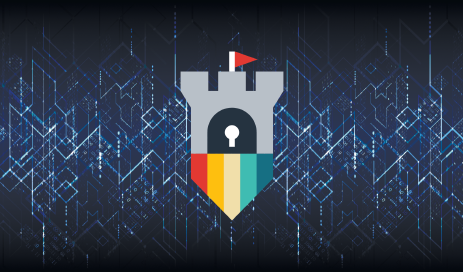In an increasingly digital world, we face the challenge of securely managing our digital identities while maintaining control over our personal data. Identity providers are the answer to these growing needs, offering innovative solutions that combine security and user-friendliness. But what exactly is behind this concept? In this glossary, we examine the role of identity providers as key players in digital security and management.
What are Identity Providers?
Identity providers (IdPs) are key players in the digital world who take on the task of managing and confirming the identity of users. These organizations or services ensure that users can access various online services securely and reliably without having to register or log in repeatedly. An identity provider thus acts as a trusted intermediary between the user and the online services that the user wishes to use.
The concept of an identity provider is based on the idea that a user’s identity information is securely stored and managed in a central location. This can be a government agency, a bank, a social network, or a specialized technology company. The identity provider ensures that only authorized parties have access to this sensitive data and that all transactions are secure and traceable.
The identity provider usually offers various authentication methods tailored to the specific application, such as username/password, magic link, social login, enterprise connections such as Entra ID or Okta (also known as single sign-on (SSO) in some contexts), passkeys with biometrics, two-factor authentication, etc.
The Role of Identity Providers in the Digital World
In today’s digital world, identity providers have become indispensable. They not only help to increase security, but also improve the user experience. A key aspect of their role is preventing identity theft, one of the most common and serious threats in the digital space. By implementing strong authentication mechanisms and advanced encryption technologies, identity providers help keep users’ identities safe.
In addition, identity providers play a crucial role in ensuring compliance with legal regulations and standards. In light of stricter data protection laws such as the General Data Protection Regulation (GDPR) in the European Union, companies must ensure that they protect their users’ data properly. Identity providers help companies meet these requirements by ensuring that data is stored and transmitted securely.
Another important aspect is interoperability. Identity providers enable users with solutions such as single sign-on to authenticate themselves across different platforms and services without needing separate login credentials for each service. This is particularly beneficial in a globalized world where people often work and communicate across national borders. The ability to log in seamlessly and securely to different services promotes efficiency and convenience for users worldwide.
Advantages of Using Identity Providers
The use of identity providers offers numerous advantages for both individuals and companies. One of the most obvious advantages is improved security. Since security and the correct implementation of authentication methods are not everyday issues for a normal IT department, an identity provider specializing in these areas usually has more knowledge and experience in implementing such a security-relevant system professionally and on a permanent basis than the company’s own IT department.
Another significant advantage is user-friendliness. Thanks to their experience, identity providers can usually offer their customers a user interface that is tailored to user needs and constantly being developed, which often differs from in-house solutions, at least in subtle ways. While companies themselves still mostly use the traditional authentication method with username and password, identity providers are trying to convince their customers to switch to more innovative access methods such as single sign-on, magic links, passkeys, etc. These new mechanisms can often significantly increase the overall security of the access system as well as user-friendliness.
Identity providers also offer operational advantages for companies. They can simplify user account management and improve IT security by using central authentication and authorization mechanisms. This not only reduces the cost and effort of managing user accounts, but also ensures a unified and consistent security strategy. In addition, by using identity providers, companies can ensure that they comply with legal and regulatory requirements, which is crucial in today’s business world.
Security Aspects of Identity Providers
Security is at the heart of identity providers’ services. One of the most important security aspects is the use of strong authentication methods. In addition to traditional usernames and passwords, many identity providers rely on passwordless authentication or two-factor authentication (2FA), which adds an extra layer of security through the second factor. This can be done, for example, by entering a one-time password (OTP) sent to the user’s mobile phone or by biometric methods such as fingerprint or facial recognition.
Another critical security aspect is encryption. Identity providers ensure that all data transmitted via their platforms is encrypted. This protects the data from eavesdropping attacks and ensures that only authorized parties have access to the information. Encryption applies to both data transmission and storage to ensure maximum security.
In addition, identity providers offer centralized management and implement strict access and authorization controls. They are regularly reviewed and updated to ensure that they comply with the latest security requirements and guidelines. This is particularly important in large organizations where there are many users and systems to manage. This ensures that only authorized users can access specific data and services and that the best possible protection for user identities can be guaranteed.
Identity Provider and Data Protection: What You Need to Know
Data protection is a key concern when it comes to the use of identity providers. Since these providers have access to sensitive personal data, it is crucial that they implement strict data protection guidelines and measures. One of the most important aspects here is compliance with legal regulations such as the General Data Protection Regulation (GDPR). The GDPR sets strict requirements for the protection of personal data, and identity providers must ensure that they meet these requirements.
Another crucial point is data minimization. Identity providers should only collect and store data that is absolutely necessary to provide their services. This reduces the risk of unnecessary or superfluous data being disclosed or compromised. In addition, users should be able to control the collection and use of their data by giving their clear consent and being able to revoke it at any time.
Unfortunately, data protection is not taken as seriously everywhere as it is in the European Union. This makes it all the more important to take a closer look at identity providers operating from third countries, i.e., outside the EU. For data protection reasons, it is often not sufficient for a provider to operate its servers within the EU but have its headquarters in a third country.
Conclusion: Identity Management as the Foundation of Digital Security and Future Trends
Identity management is undoubtedly one of the most important pillars of digital security. In a world increasingly shaped by digital interactions and online services, it is crucial that we have secure and reliable methods for managing and verifying our identities. Identity providers play a central role in this by providing advanced technologies and solutions that offer both security and user-friendliness.
Looking ahead, the importance of identity providers will continue to grow. With the increasing proliferation of Internet of Things (IoT) devices, the advancement of artificial intelligence (AI), and the increasing digitization of all areas of life, the secure management and verification of identities will become increasingly important. Identity providers will need to continue developing innovative solutions to meet ever-changing requirements and threats.
To prepare for these developments, both individuals and companies should take proactive measures. This means staying up to date on the latest security measures and best practices, using strong and unique passwords, implementing multi-factor authentication (MFA) wherever possible, and choosing services from trusted and certified identity providers. This is the only way to ensure that our digital identity remains protected in an increasingly complex and connected world.
Note: This glossary was first published in December 2022 and last updated and corrected in April 2025.



